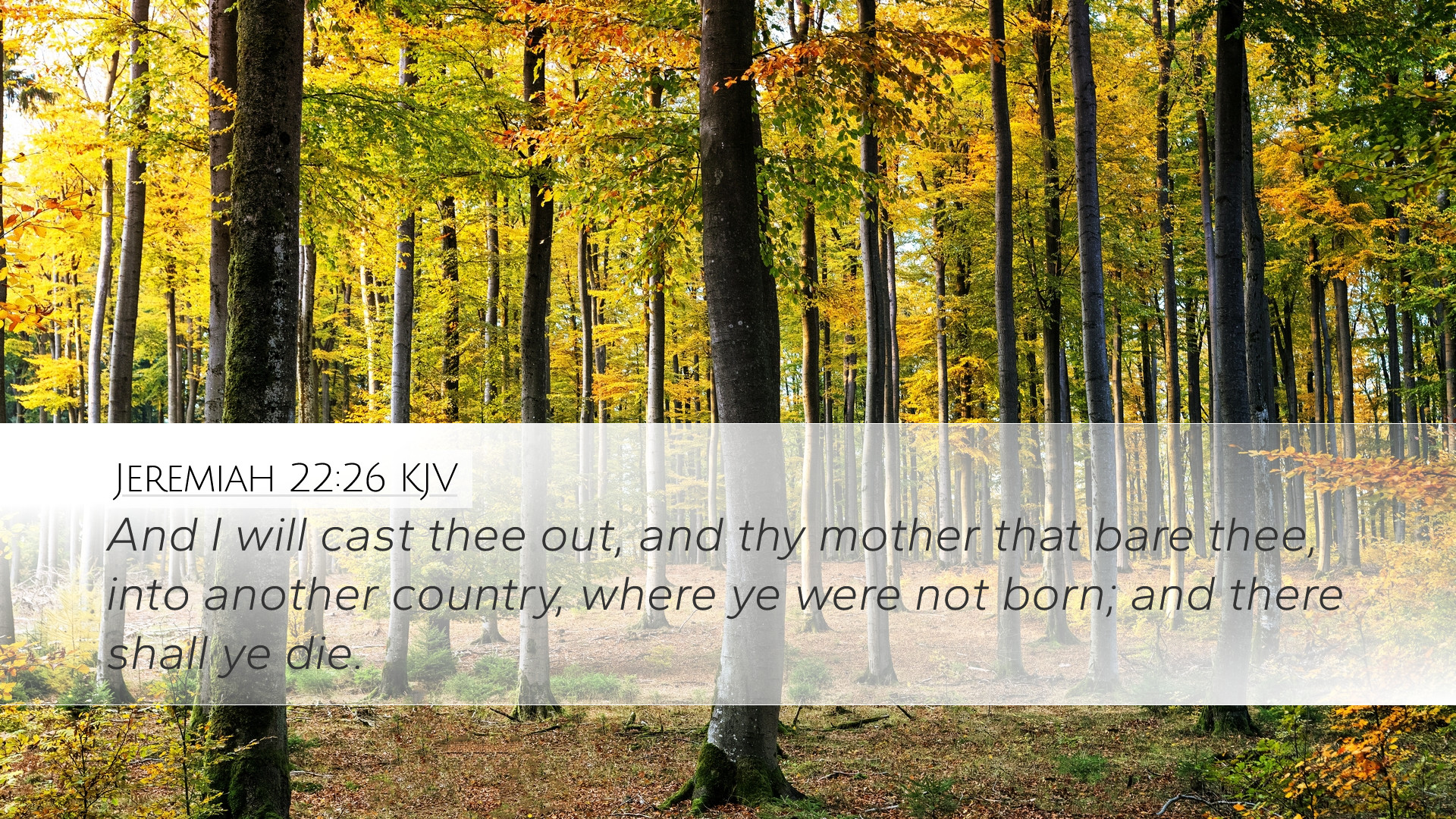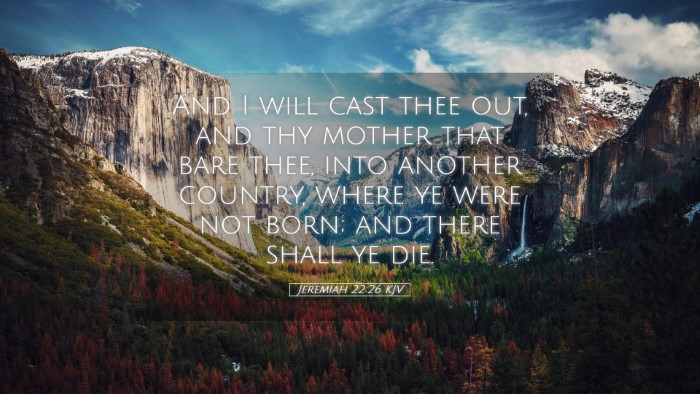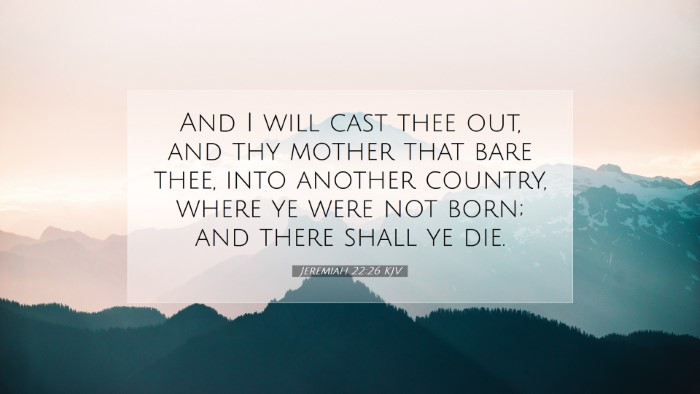Commentary on Jeremiah 22:26
Verse: "And I will cast thee out, and thy mother that bare thee, into another country, where ye were not born; and there shall ye die."
Introduction
Jeremiah 22:26 presents a striking warning, reflecting God's divine judgment on King Jeconiah (also known as Coniah or Jehoiachin) and his lineage. This verse draws attention to God's sovereignty and the dire consequences of disobedience. The commentaries explored below will delve into the context, implications, and theological significance of this prophetic declaration.
Context of Jeremiah 22
The Book of Jeremiah, written by the prophet Jeremiah, addresses the moral and spiritual failings of Judah, particularly its kings. By the time we reach chapter 22, we witness God's message concerning the leadership's failure to uphold divine justice and righteousness.
Jeremiah 22 opens with a call to the kings of Judah to enact justice and protect the oppressed (verses 1-5). The subsequent verses emphasize the consequences of ignoring divine commands, culminating in the pronouncement of judgment upon Jeconiah.
Commentary Insights
Matthew Henry’s Commentary
Matthew Henry emphasizes that this verse serves as a warning against the pride and disobedience of Jeconiah. He notes, "His mother, though a queen, is not excused from the punishment of her son’s sin." This dual judgment showcases God's impartiality in justice, indicating that nobility does not shield one from accountability.
- Displacement: Henry highlights that being cast out signifies not just physical exile but a spiritual estrangement from God.
- Spiritual Robertility: He observes that the kingship of Jeconiah is forfeited as a direct result of his rebellion against God, emphasizing the theme of divine sovereignty over earthly rule.
Albert Barnes’ Notes on the Bible
Barnes provides a detailed exposition on the phrase "into another country." He explains that this refers to the Babylonian exile, where Jeconiah and many of the Israelites would be taken. He interprets the exile as a necessary consequence for their persistent idolatry and moral decay.
- Judgment as a Warning: Barnes stresses that this prophecy was not only a specific statement to Jeconiah but a universal lesson for all who challenge God's authority.
- Genealogical Implications: He notes that the lineage of kings is significant; Jeconiah’s fate directly influenced the Davidic line, foreshadowing the significance of Christ’s genealogy in the New Testament.
Adam Clarke’s Commentary
Adam Clarke reflects on the harshness of the decree, highlighting the emotional and familial repercussions of exile. He remarks, "The mother’s name and status do not absolve her from the consequences of her son's actions," reinforcing the theme of shared responsibility within familial ties.
- Theological Reflection: Clarke invites readers to consider the broader implications of judgment, indicating that God’s righteousness demands accountability across all strata of society.
- Hope amidst Judgment: Despite the grim pronouncement, Clarke points to the eventual restoration found in God's covenant, illustrating that judgment is always coupled with hope for redemption.
Theological Implications
This verse encapsulates several core theological themes:
- The Sovereignty of God: God's authority over nations and rulers is paramount, a reminder that He establishes and deposes vassals according to His divine will.
- Judgment and Mercy: While the verse highlights judgment, it also underscores God's enduring mercy and His commitment to eventual restoration.
- The Impact of Leadership: The failings of a leader have ramifications not just for themselves but for their families and communities, emphasizing the weight of leadership.
- Hope of Redemption: The exile, though difficult, is ultimately part of God’s redemptive plan, leading to the prophetic hope of restoration through Jesus Christ.
Concluding Thoughts
Jeremiah 22:26 serves as a stern reminder that disobedience to God’s commands carries serious consequences. For pastors, students, theologians, and scholars, this verse invites a deeper exploration of the interplay between justice, leadership, and divine grace.
As we reflect on Jeconiah's fate, may we be inspired to evaluate our own hearts and leadership principles in light of God's unwavering righteousness and mercy.


